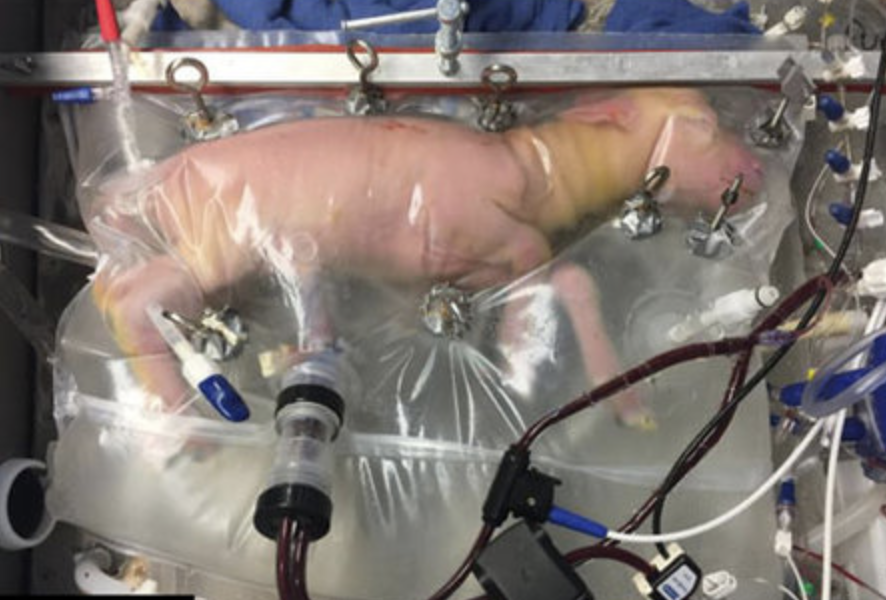A newly-tested artificial womb could save babies born extremely prematurely, according to a study published in the journal Nature Communications.
Nearly 15 million premature babies are born every year worldwide. In 2015 alone, 1 million children under the age of five died due to complications related to premature births.

The device has only been tested on fetal lambs thus far, but it was effective at enabling premature fetuses to develop normally for a month. Researchers say this could one day be the “bridge between the mother’s womb and the outside world.”
“We’ve been extremely successful in replacing the conditions in the womb in our lamb model,” said Dr. Alan Flake, a fetal surgeon at Children’s Hospital of Philadelphia who led the study. “They’ve had normal growth. They’ve had normal lung maturation. They’ve had normal brain maturation. They’ve had normal development in every way that we can measure it.”
The premature fetal lambs in the study were inside a container for about four weeks, breathing amniotic fluid, which helped their lungs develop. The device was hooked up to an outside machine through an umbilical-like cord in order to function like a placenta.
Related: Young Cancer Survivors Are More Likely to Have Premature Babies, Study Says
The device is kept in a warm, dark room where the researchers played the sound of the mother’s heart and used ultrasounds to monitor the progress of the lamb fetuses.
“The whole idea is to support normal development; to re-create everything that the mother does in every way that we can to support normal fetal development and maturation,” Flake says.

Flake and his team hope to start testing this device on premature babies within the next three to five years.
However, some experts worry about the ethical implications of this new device.
“There are all kinds of possibilities for stress and pain with not, at the beginning, a whole lot of likelihood for success,” Dena Davis, a bioethicist at Lehigh University, told NPR.
“If it’s a difference between a baby dying rather peacefully and a baby dying under conditions of great stress and discomfort then, no, I don’t think it’s better,” Davis added.
Flake argued that although he understands the ethical concerns, the potential to save so many lives needed to be balanced against the risk. The device would be specifically designed for babies born only 23 or 24 weeks into the pregnancy. Babies born that prematurely only survive half the time, and when they do live, they often suffer from severe complications, like cerebral palsy, seizures, paralysis, blindness and deafness.
“If you can just use this device as a bridge for the fetus then you can have a dramatic impact on the outcomes of extremely premature infants,” Flake says. “This would be a huge deal.”
Related: Probiotics May Be Helpful for Premature Babies
Danielle Tarasiuk is a multimedia journalist based in Los Angeles. Her work has been published on AllDay.com, Yahoo! Sports, KCET, and NPR-affiliate stations KPCC and KCRW. She’s a proud Sarah Lawrence College and USC Annenberg alumn.


![How To: ‘Fix’ Crepey Skin [Watch]](https://cdn.vitalupdates.com/wp-content/uploads/2017/05/bhmdad.png)












